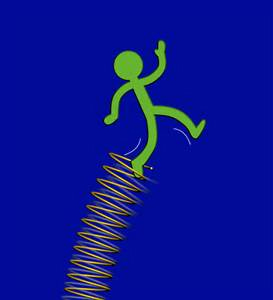Hiring a new employee is the gift that keeps on giving. New team members bring new energy, excitement, ideas, and perspective to the team. A single new employee with a positive attitude and engaging personality can shift the mental energy of the entire team. New employees also ask innocent but tough questions that force you to question how and why you do things a certain way. They don’t accept “this is how it’s always been done” as an acceptable answer to their questions. And when training a new employee, skills gaps for the rest of the team may be uncovered. … Read More
If You Thought Millennials Were a Challenge…
When Simon Sinek (noted author, speaker, and expert on leadership) was asked about leading Millennials in the workplace on Inside Quest, his response went viral. With millions of views and social media shares, he clearly struck a chord with the workforce. He noted 4 characteristics about Millennials that present a challenge in the workplace: parenting, technology, impatience, and environment. Simon explains that through no fault of their own, Millennials are significantly affected by failed parenting strategies where parents forced recognition/awards on all kids whether their performance merited it or not. They also grew up being told they can have anything … Read More
To Counter or Not to Counter
“I need to put in my two-week notice.” That short sentence can evoke so many emotions. When an average or struggling employee utters those words, it may feel like a relief. But when a high performer delivers the same message, as a leader, your brain may go into overdrive. What happened? How did I miss the signs that the employee was unhappy? Did I do something wrong? How long has he/she been interviewing? Why didn’t I know? What will we do without him/her? We can all say “it’s business, not personal” but that doesn’t mean a resignation won’t hurt. Receiving … Read More
Don’t Mistake High Performers for High Potentials
One of the most common mistakes made in succession planning is to confuse high performance with high potential. It’s easy to spot a high performer. They are the team members you rely on for last minute sales or to make a difficult deadline. They are your go-to team members. They are the team members you actively work to retain and would even counter-offer if they considered leaving the organization. Because they’re so easy to identify, and we can’t fathom losing them to a competitor, we often push them towards a management route.
Resilience: The 21st Century Workplace Skill
Many of us grew up learning the 3 R’s throughout our education (reading, writing, and arithmetic). However, as technology changed and the needs of the workforce became more complex, educators realized the true skills necessary for success had changed as well. For the past decade, educators have been focused on teaching the four C’s that have been deemed 21st Century Workforce Skills. The 4 C’s necessary for workforce readiness are critical thinking, communication, collaboration, and creativity. Many organizations report that, despite higher education’s focus on the 4C’s, new graduates still lack basic proficiency in these areas.
The Right Way to Reward Employees
We all know that employee recognition is important. Not only do we naturally want to acknowledge the high-functioning teams we lead for their hard work, but we want to be recognized for our own contributions to the organization’s success. Recently, IBM’s Smarter Workforce Institute published a white paper with great data on the importance of rewarding employees. Here are a few key findings from their survey of 19,000 workers: Employees who receive recognition are more likely to be engaged at work. The engagement level of employs who receive recognition is almost three times higher than the engagement level of those … Read More






